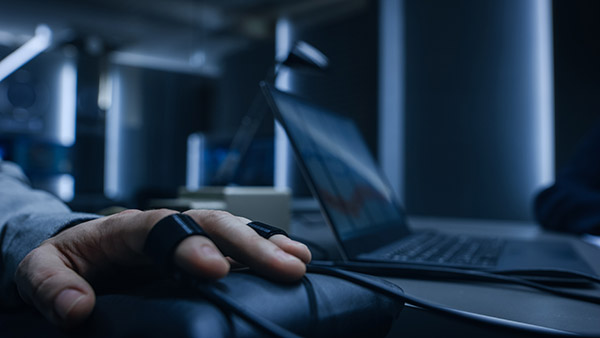Is There a Test to See If Someone Cheated?

Did you know that 30-60% of married individuals in the United States engage in infidelity at some point in their marriages? This startling statistic from the American Association for Marriage and Family Therapy highlights the prevalence of cheating in relationships. But how can you know for sure if your partner has been unfaithful? Is there a definitive test to detect cheating?
In this post, we’ll explore various methods – from scientific tests to behavioral analysis and technological tools – that people use to uncover infidelity. We’ll discuss their effectiveness, limitations, and what they can reveal about a partner’s faithfulness.
The Science of Infidelity Detection
You might be surprised to learn that scientists have developed methods to detect cheating. Let’s dive into some of these fascinating approaches.

1. DNA Testing
DNA testing can reveal if your partner has been intimate with someone else. How? By detecting trace amounts of another person’s DNA on your partner’s clothing or body. However, this method is invasive and requires access to physical evidence.
2. Polygraph Tests
Also known as lie detector tests, polygraphs measure physiological responses like heart rate, blood pressure, and skin conductivity. While popular in movies, their reliability in detecting lies is controversial, with accuracy rates varying widely.
The Truth About Lie Detectors
Did you know that polygraph results are generally not admissible in court? The American Psychological Association states that most psychologists agree that there is little evidence supporting the validity of polygraph tests.
Behavioral Analysis Techniques
Sometimes, the most telling signs of infidelity are in a person’s behavior. Let’s explore some methods of behavioral analysis.

3. Body Language Reading
Experts in nonverbal communication can detect subtle cues that might indicate deception. These include micro-expressions, eye movement patterns, and changes in posture or gestures.
4. Voice Stress Analysis
This technique analyzes vocal patterns to detect stress that might indicate lying. While some law enforcement agencies use it, its accuracy in detecting infidelity is not scientifically proven.
Technological Tools for Detection
In our digital age, technology plays a significant role in uncovering infidelity. Here are some tech-based methods people use:
5. Phone Monitoring Apps
Apps like Spynger allow users to monitor phone activities, including calls, messages, and location data. These tools can provide insights into a partner’s digital communications and movements. However, it’s crucial to use such technology responsibly and within legal boundaries.
6. Social Media Analysis
Analyzing a partner’s social media activity can reveal potential red flags. This might include unusual friend additions, secretive messaging, or changes in online behavior.
The Digital Footprint
Remember, every online action leaves a trace. A study by the University of Maryland found that 67% of lawyers use Facebook as their primary source of evidence in divorce proceedings.
Psychological Approaches
Sometimes, the key to uncovering infidelity lies in understanding the psychology behind it.

7. The “Guilt Trip” Test
This informal method involves creating scenarios that might trigger a guilty response in a cheating partner. For example, you might casually mention running into their “friend” at an unexpected time or place.
8. The Unexpected Return
Arriving home unexpectedly or changing plans at the last minute can sometimes catch a cheating partner off guard. However, this method can create trust issues if used excessively.
Professional Investigation
When personal methods fall short, some people turn to professionals for help.

9. Private Investigators
These professionals use surveillance techniques to gather evidence of infidelity. While effective, their services can be expensive and might feel invasive.
10. Forensic Accountants
In cases where financial infidelity is suspected alongside emotional or physical cheating, forensic accountants can trace money trails and uncover hidden expenses or accounts.
The Cost of Suspicion
Before hiring professionals, consider the emotional and financial costs. A private investigator can cost anywhere from $50 to $200 per hour, according to Thumbtack, a professional services website.
The Reliability Factor
It’s important to note that no single test or method is 100% reliable in detecting infidelity. Each approach has its limitations and potential for false positives or negatives.
Combining Methods
Often, a combination of different approaches can provide a more comprehensive picture. For example, behavioral analysis coupled with digital investigation might reveal patterns that a single method would miss.
The Human Element
While tests and tools can provide valuable information, they can’t replace human intuition and communication.

11. Open Dialogue
Sometimes, the most effective “test” is an honest, open conversation with your partner. Creating a safe space for truth can lead to revelations that no scientific test could uncover.
12. Self-Reflection
Before accusing a partner of cheating, it’s crucial to examine your own fears and insecurities. Are your suspicions based on concrete evidence or personal anxieties?
Moving Forward
Regardless of what any test or method reveals, the path forward requires careful consideration.
If infidelity is confirmed:
- Seek professional help: A couples therapist can guide you through the healing process.
- Set clear boundaries: Establish what you need to rebuild trust.
- Take time for self-care: Prioritize your emotional well-being during this challenging time.
If suspicions are unfounded:
- Address underlying trust issues: Work on building a stronger foundation of trust in your relationship.
- Improve communication: Develop healthier ways to express concerns and insecurities.
- Seek individual counseling: If persistent suspicions are affecting your relationship, professional help can be beneficial.
Conclusion
In conclusion, while there’s no single, foolproof test to determine if someone has cheated, various methods can provide insights into a partner’s fidelity. However, it’s crucial to approach this sensitive issue with care, respect, and open communication. Remember, the goal isn’t just to uncover potential infidelity, but to build a relationship based on trust, honesty, and mutual respect.
Ultimately, the strength of a relationship doesn’t lie in the ability to detect cheating, but in the commitment to open communication, trust, and mutual growth. Whether you’re dealing with confirmed infidelity or working to overcome suspicions, the path forward involves patience, understanding, and a willingness to confront difficult truths together.






